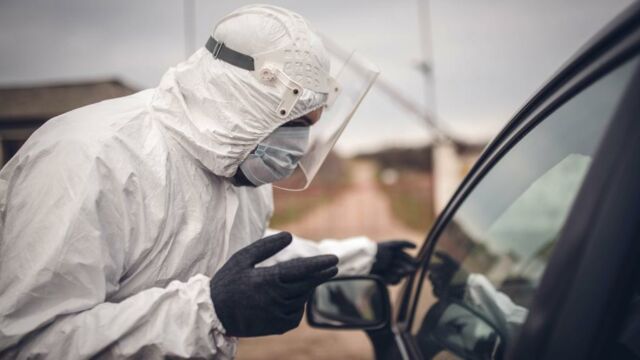These are alarming findings. The British strain of the COVID-19 virus continues to spread across the world. The World Health Organization (WHO) said on Wednesday January 20 that it had been found last week in 60 countries and territories, 10 more than on January 12. The WHO specified in its weekly epidemiological review that the South African strain, which, like the British one, is much more contagious than the original SARS-CoV-2 virus, spreads more slowly and is present in 23 countries and territories, meaning 3 more than January 12. In Britain, it has now become the dominant strain.
Discover our latest podcast
A virus with a lust for travel
Professor Devi Sridhar, chair of global public health at the University of Edinburgh, said Friday that the world had become 'the virus’s playground to mutate and evolve, (especially) in countries which have allowed higher prevalence.'
The WHO also monitors the spread of the two other strains having emerged from Brazil, the P1, spotted in the state of Amazonas, and also detected in Japan in 4 people from Brazil, and another yet unclassified strain. Two of these people were reported as asymptomatic, although one then developed respiratory issues. The WHO stresses that their genetic characteristics are similar to the British and South African strains, and that this makes further studies necessary.
There is currently little information available to assess whether the transmissibility or the severity is modified by these new strains.
A strain 50 to 70% more contagious than the original coronavirus
The British strain reported in mid-December to the WHO is considered 50 to 70% more contagious than the original coronavirus. It's been found in the 6 geographical areas of the WHO, while the South African strain is only present in 4 of them, reported the WHO without specifying which ones. These two strains, which are much more contagious, are not necessarily more dangerous, according to the current state of research, but by making more people sick more easily, they increase the pressure on health systems, which in certain countries such as the United Kingdom and the United States are sometimes on the verge of implosion.
The matter of vaccine effectiveness against these new strains is also worth considering, but nothing so far shows that the shots used are rendered less effective. Moreover, laboratories have promised that they are able to quickly provide new versions of their vaccine if necessary.
To date, the COVID-19 pandemic has already infected over 93.2 million people worldwide and claimed 1.9 million lives. The WHO notes that the number of deaths increased 9% in the week ending January 17 from the previous week, to reach a record 93.000 deaths.















